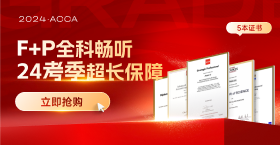大股東與公司控制權(quán)
最大股東擁有整個公司的控制權(quán)嗎,,決定公司大小事宜,?不是所有權(quán)和控制權(quán)分離嗎,,只要是公司的股東之一,,就擁有所有權(quán)是嗎
問題來源:
2.4 Non-governmental organizations (NGO) 非政府組織
? A non-governmental organization (NGO) is a legally constituted organization of people acting together independently from any form of government.
? The description 'NGO' generally applies to groups whose primary aim is not a commercial one, but within this the term is applied to a diverse range of activities, aimed at promoting social, political or environmental change.
? NGOs may need to possess an efficient level of organization structure.

2.5 Co-operative societies 合作社
Co-operatives are businesses owned by their workers or customers, who share the profits.
Features:
a) Open membership
b) Democratic control 民主 (one member, one vote 一人一票)
c) Distribution of the surplus in proportion to purchases
d) Promotion of education

2.6 Mutual associations 互助會
? Mutual associations are similar to co-operatives in that they are owned by their members rather than outside investors.
? Example: Credit union 信用聯(lián)盟

? 互助會,,是民間一種信用貸款的形態(tài),,具有賺取利息與籌措資金的功能,?;ブ鷷钠饡朔Q為會首,,其余參加互助會的人則為會員。

于老師
2021-11-17 13:45:28 1019人瀏覽
第一大股東一定擁有對公司的控股權(quán)嗎,?做決定要看股份多少,如果第一大股東只有20%,,其余人都不同意,,也沒法控制,如果51%,,則絕對控制,。
首先一個概念,,控制權(quán)由兩個層面構(gòu)成:表決權(quán)和實際控制權(quán)。在股權(quán)集中的情況下,,多數(shù)股權(quán)所有者和少數(shù)股權(quán)控制者利用其股東會層面的表決權(quán)和董事會,、管理層層面的實際控制權(quán),以侵占小股東利益的方式實現(xiàn)其自身利益最大化,。51%以上的絕對控制權(quán)即股東層面的表決權(quán),。
所以,所有權(quán)與控制權(quán)分離也有兩種形式:一是所有權(quán)與實際控制權(quán)分離,,二是所有權(quán)與表決權(quán)分離,。
(1)在股權(quán)分散的情況下,全體股東所有權(quán)與管理層實際控制權(quán)分離,。即反映的是全體股東與管理層之間的利益沖突,。
(2)在股權(quán)集中的情況下,一方面,,對于多數(shù)股權(quán)所有者而言,,所有權(quán)與控制權(quán)通常得到有效的結(jié)合。另一方面,,對于幾乎所有的少數(shù)股權(quán)所有者而言,,所有權(quán)與控制權(quán)幾乎完全分離(表決權(quán))。即反映的是大股東與小股東之間的利益沖突,。
相關(guān)答疑
-
2025-06-26
-
2024-01-09
-
2023-12-18
-
2023-12-18
-
2021-11-17







 津公網(wǎng)安備12010202000755號
津公網(wǎng)安備12010202000755號